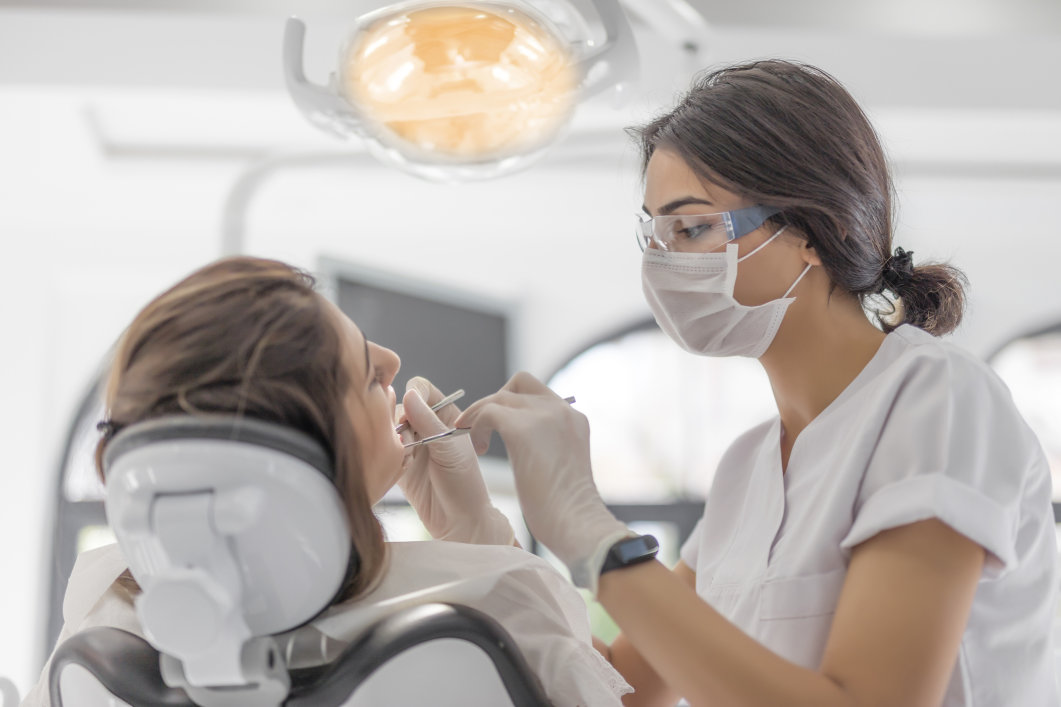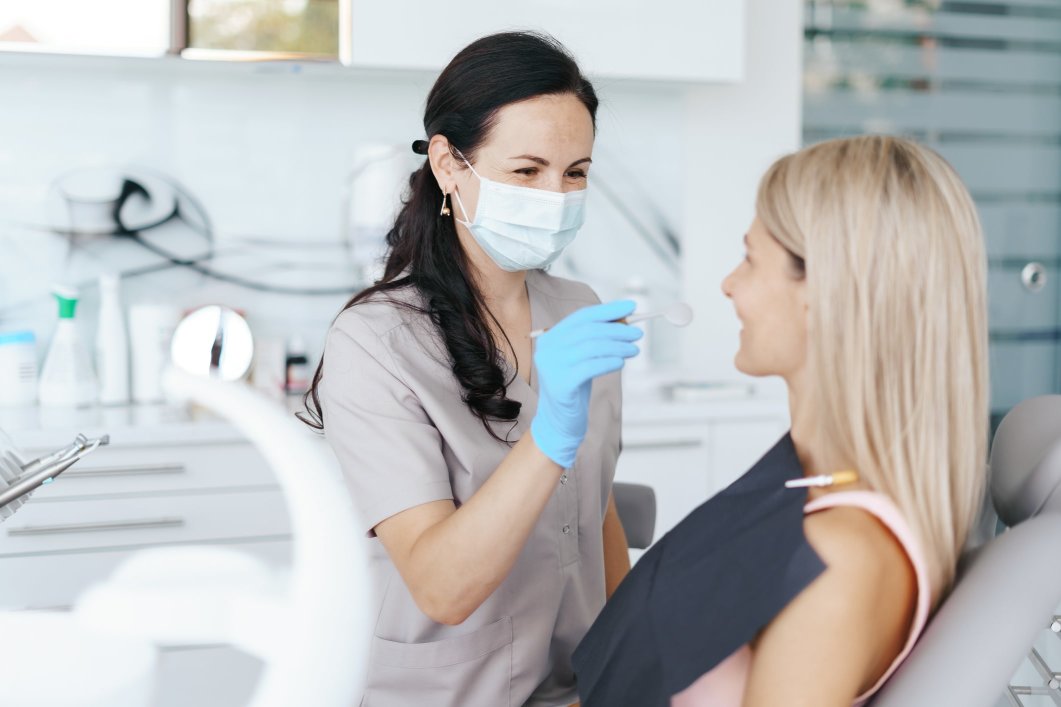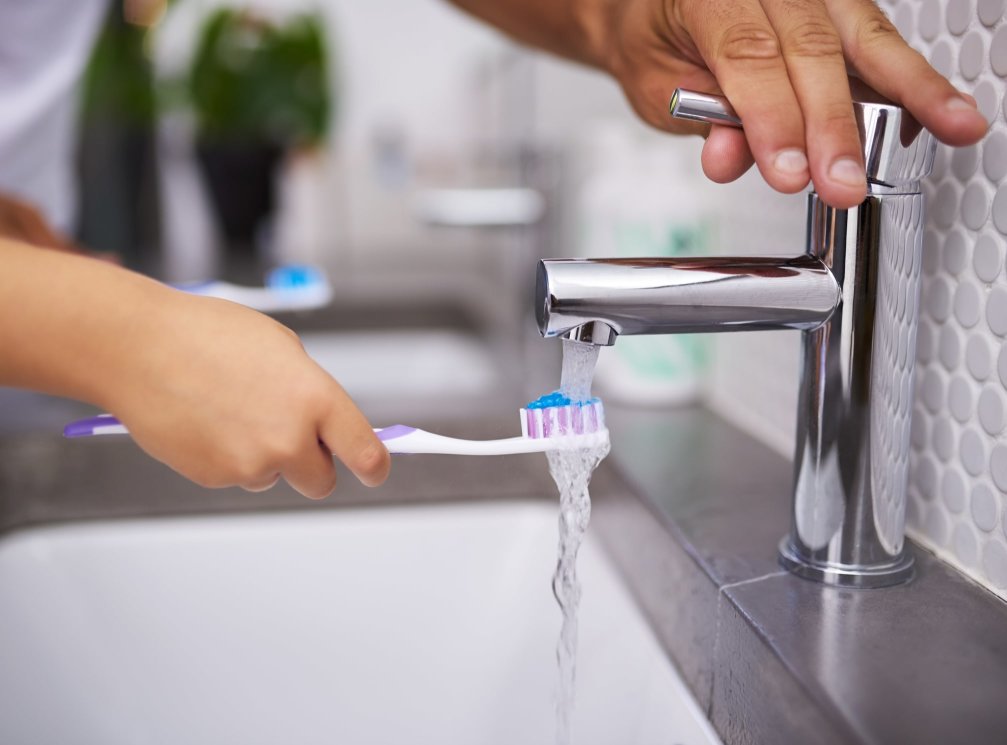
If you’re considering whether or not to get dental insurance (and if it’s even worth it), the first thing you need to do is have a good understanding of how this type of insurance works, what your payments go towards, and what services you can get with it.
When you purchase dental insurance, you pay a monthly premium in exchange for reduced costs on various dental services (some of which are even free when you have insurance). Now, it gets a little more nuanced when you factor in the additional costs like copays, deductibles, and coinsurance, in addition to which services are covered and which aren’t (which we’ll break down later in this article).
Keep reading to learn how dental insurance works, and if getting it is worth it in the long run.
Key Takeaways
You can get dental insurance from your employer or purchase it on your own.
Preventative dental care is usually fully covered, while basic and major services require a portion of the costs to be covered by you.
When evaluating dental plan options, the most important factor is the network, especially if you currently see a dentist that you like.
Dental insurance can save you money in the long run, not only if you will need more serious dental services, but if your annual contribution requirement is less than the cost of your cleaning and check-ups for the year.
How Does Dental Insurance Work?
If you’re employed full-time, you are likely offered dental insurance through your employer in one fashion or another. Some employers offer dental insurance at no cost to you as an employee, but most require a contribution on your behalf in the form of payroll deductions.
If you’re new to a company and making decisions on your benefit plans, you may not be sure whether it’s worth it to get a dental plan.
The answer is much clearer if you’re offered dental insurance on a non-contributory basis (free to you as an employee): YES! Even if you don’t plan on needing dental work during the year, you can still access a free check-up and cleaning once every year (on some plans, twice a year).
Without insurance, the cost of a check-up and cleaning will vary depending upon where you are located but will generally cost between $275 and $300, which covers exams, x-rays, and cleanings. Higher-cost procedures such as crowns, bridges, and implants can cost as much as $4,000-$5,000.
If your dental coverage requires an employee contribution, the answer may not be as clear. Getting a deeper understanding of plan types and costs may provide some clarity.

Deductibles, Copays and Coinsurance
Even if you’re covered under a dental policy, you will still be required to share the cost of care with your insurance provider for most services rendered.
If your employer offers a Dental HMO (DHMO) plan, you will have the opportunity to review a pre-determined list of charges for all covered services in what’s called a ‘Copay Schedule.’ Copays are pre-determined rates that the patient will need to pay when receiving in-network care, regardless of the actual cost of the service.
However, if your employer offers a Dental PPO (DPPO) plan, the cost of care will not be as transparent.
For preventive care (exams, cleanings, and X-rays), your plan will typically cover 100% of the costs for these services. However, other services such as fillings, extractions, and endodontic procedures will be covered by coinsurance, after a deductible is met.
Coinsurance is a specific percentage of the costs that you’ll be responsible for paying when receiving services. It’s essentially a sharing of the cost between the patient and the insurer.
The deductible requirement is typically $50 for single enrollees and $150 for enrollees with dependents, and is also typically only applied to ‘Basic’ and ‘Major’ services, not preventive (cleanings, covered annually or semi-annually at no cost to you).
The main difference between a Dental HMO (DHMO) plan and a Dental PPO (DPPO) plan is that you can receive reimbursement for care received out-of-network if enrolled in a Dental PPO plan.
Should I Get Dental Insurance?
If you’re still wondering whether you should get dental insurance, your next step should be annualizing your employee contribution requirement.
The average cost of a cleaning and check-up could range between $100 and $300 and more if you live in a large metropolitan area, so if your annual contribution requirement is less than the cost of your cleaning and check-ups for the year, the answer is a no-brainer.
The ADA (American Dental Association) recommends that adults and children receive a professional cleaning at least twice in 12 months, so maintaining your teeth without planned or unexpected procedures can cost $600 or more.
What to Look for in a Dental Insurance Plan
If you have dental plan options, you may be wondering what to look for in a dental plan.
When evaluating dental plan options, the most important factor is the network, especially if you currently see a dentist that you like.
If your dentist is not in-network, you will be required to change providers going forward or be subject to high, unpredictable costs for out-of-network care with little cost assistance from the insurer on a PPO plan. If your employer only offers a DHMO plan and your current dentist is not in-network, you will not receive any assistance from the insurer.
Can You Have More Than One Dental Insurance Policy?
Some employees have a spouse that also works full-time and is also offered their own dental plan. If both plans are attractive, you may be wondering if you can have more than one dental insurance policy.
The answer is yes. However, dual-dental coverage does not ‘double’ your coverage.
Like with medical insurance, at the time of a claim, there will be a ‘Coordination of Benefits’ between the two insurers, potentially resulting in 100% coverage of the claim, but never more. In this scenario, the patient would be required to select one of the dental plans as the ‘Primary’ plan, which would pay the claim first. The claim would then be sent to the ‘Secondary’ plan, and if applicable, additional payment could be made to the provider.
So, Is Dental Insurance Worth It?
Is it worth it to get dental insurance? In summary, yes. Although some will argue that emergency dental procedures will be covered by major medical insurance in the event of an accident, this coverage does not include cost-sharing for cleanings, exams, or any follow-up procedures.
If enrolled in a dental plan through your employer, your patient responsibility could be cut in half, or more, depending on the service rendered and your plan.







